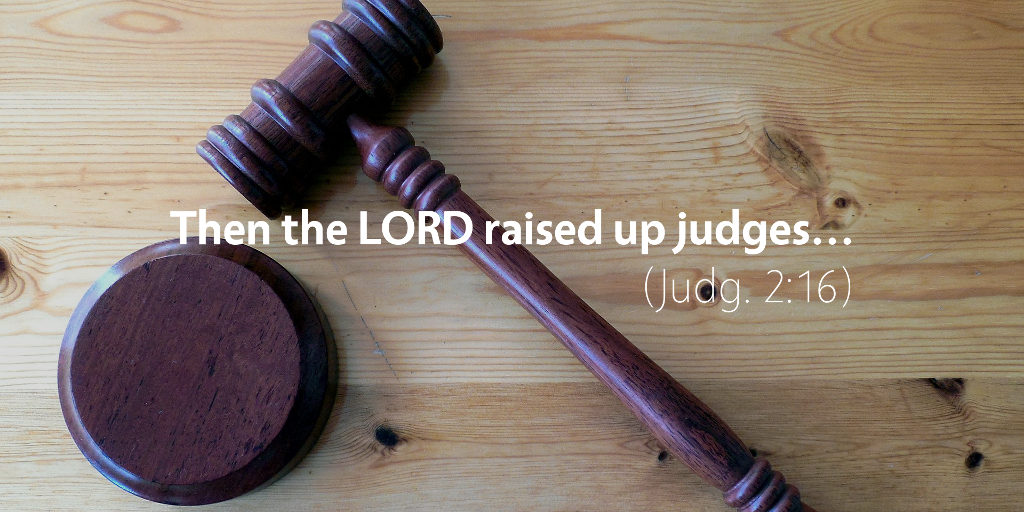Bible Readings for July 19th
Judges 2 | Acts 6 | Jeremiah 15 | Mark 1
Judges 2:16–23 explicitly describes the pattern that we will encounter again and again through this book: Israel will sin, and, as a result, Yahweh will hand his people over to judgment. But, when the people cry out to Yahweh to rescue them, Yahweh will raise up a judge for them, since he is “moved to pity by their groaning because of those who afflicted and oppressed them” (Judg. 2:18). Yahweh will give victory to the judge, and the judge will reform the worship of Israel for the duration of his life. But then, when the judge dies, Israel will sink deeper into sin than they had before the ministry of the judge. From that point, the pattern will start over again, but Israel will begin the cycle from a worse condition than in the previous iteration.
We find the starting point for this spiral descent, then, with the elders who had served alongside Joshua. For as long as that generation lived, the people of Israel did not worship false gods (Judg. 2:5–10). Instead, the sin of their generation was their failure to obey Yahweh fully by driving the inhabitants of Canaan out of the land, as we looked at in Judges 1. But when those elders died, severing the last remaining connection back to Joshua (and back to Moses before him), Israel does whatever is right in their own eyes—and specifically, they begin to serve the Baals and the Ashtaroth (Judg. 2:11–15). This provokes Yahweh to anger, and he turns Israel over to be defeated and oppressed by their enemies, starting the cycle all over again. Thus begins the tragic story of the book of Judges.
But as we discussed yesterday, this whole story underscores Israel’s desperate need for a shepherd. Most of the judges that we will read about in this book were prophets, but none were priests who had ultimate responsibility for governing Israel’s religious life, and none were kings who had ultimate responsibility for governing Israel’s civil life.1 The judges had been appointed by Moses only to assist with the work of shepherding God’s people (Ex. 18). In other words, judges were never meant to be the exclusive leaders of God’s people.
Yahweh’s people need a shepherd—and that is as true today as it was then. In the new covenant, Jesus has come as our ultimate prophet, priest, and king, but when Jesus ascended into heaven, he gave leaders as gifts to his people to assist him in his ministry (Eph. 4:7–12). In other words, Jesus gave us pastors and elders to serve as undershepherds, caring for the flock of God until the chief shepherd appears again (1 Pet. 5:1–5).
Today, there is a king in Israel who, through his elders, shepherds us to ensure that we do what is right in God’s sight, rather than in our own.
1 James Bannerman, The Church of Christ: A Treatise on the Nature, Powers, Ordinances, Discipline, and Government of the Christian Church, new ed., (Edinburgh, UK: The Banner of Truth Trust, 2015), 131.
Podcast: Play in new window | Download (5.1MB) | Embed
Subscribe: Apple Podcasts | RSS | More

Scripture quotations are from The Holy Bible, English Standard Version copyright © 2001 by Crossway Bibles, a division of Good News Publishers. Used by permission. All rights reserved.


